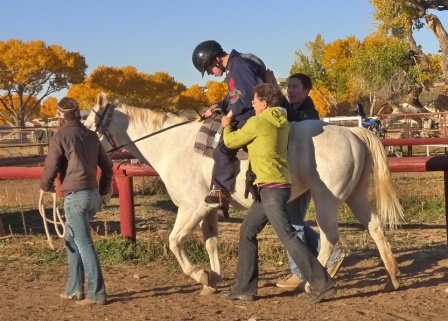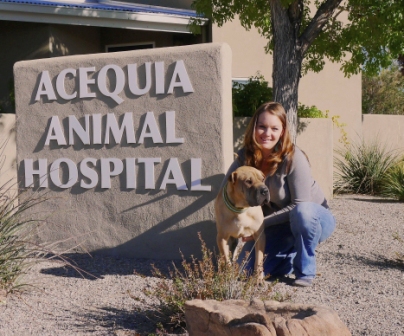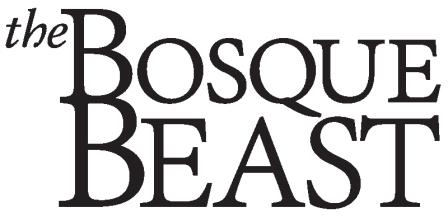Teaching without words
Therapeutic program brings more horse magic to Corrales

Jason, a client with the Cloud Dancers program who has autism and cerebral palsy, learned to steer a horse in just eight weeks using a tapping technique. Volunteers walk alongside, assisting riders with physical and cognitive disabilities.
EQUESTRIANS KNOW firsthand the joy and bonding that come from just riding on a horse, but even they would be surprised at how it can change someone who struggles with everyday tasks. So says Ashley Armijo, an equestrian trainer of the disabled who is continually amazed at what transpires before her eyes and under her guidance.
“I’ve seen a ton of things that I never thought would happen,” she says of Cloud Dancers, a therapeutic riding program that recently moved to Corrales. “It’s done wonders for people with PTSD. Vets bond with a horse, and it puts everything behind them.”
Four days a week, Armijo and trainer Karen Molony trade off working with four clients at a time, each on one of the program’s four horses, accompanied by volunteers who walk alongside. The goal of the program is to help people with disabilities learn to ride—though the benefits go far beyond horsemanship.
“It’s not therapy, but it is therapeutic,” says Cloud Dancers board president Katy Fehr. “One woman had an anxiety disorder, and she said being with the horse was the only time she didn’t feel anxious. For kids who have a hard time focusing, just being with an animal can give that to them.”
You wouldn’t know it from just watching a lesson. Armijo and Molony work on the basics—start, stop, steering—while tailoring instruction to each client’s disability and goals. The riders and horses travel around the arena or on a trail with the volunteers, talking about what they’re doing and how it feels.
In time, small miracles begin to happen. “The thing about horses is that their movement is very soothing,” says Armijo. “You can forget about the world and all that bothers you. The feeling of it—I’ve seen it over and over again. People will be transformed.”
Jason is a child with autism and cerebral palsy who has difficulty using his hands and holding his head up; he travels in a wheelchair. His parents put him in the program in hopes of reaching him, getting into his private world. After eight weeks, Armijo says Jason has learned to steer the horse by tapping, since he can’t pull on the reins—a big leap forward in communicating with another being.
With the help of modified equipment and individualized lessons, clients with autism, cerebral palsy, bipolar disorder, hearing impairment, Down’s Syndrome, and other physical, emotional, and cognitive disabilities learn to do what able-bodied riders can. Many hope to ride independently and own horses. Advanced classes work at trot and canter.
“I never look at it as they can’t,” says Armijo, a horse-lover who worked at an agency for the disabled before becoming certified as a PATH (Professional Association of Therapeutic Horsemanship) instructor. “It takes a lot of patience and positivity, but I see it all as possible. If they want to ride without a saddle, they can.”
As a nonprofit organization, Cloud Dancers depends heavily on volunteer help and donations. The program was founded in Albuquerque in 1982, and relocated to Los Ranchos and the South Valley as circumstances changed. This year it moved to Steve Komadina’s Vista Hermosa ranch at the north end of Corrales, where it hopes to remain, as the horse community here has been welcoming and supportive, Fehr says.
Fee-based classes are offered three or four days a week to anyone who has been diagnosed with a disability, with no maximum limit on sessions. The program takes a break during the winter, but hopes to restart in January.
They also hope to acquire a fifth horse, says Fehr, and be able to expand offerings to include equine-assisted psychotherapy, hippotherapy (physical therapy using horses), and sessions for veterans suffering from post-traumatic stress.
The need for volunteers, funding, and support is a constant challenge, the trainers say. Volunteers not only assist the riders, they care for the horses and help run the program. Many have no horse background, “so it’s therapeutic for them too,” Armijo notes. “They have a responsibility that benefits the clients. But since we don’t ask for a commitment, we constantly need more.”
Finding suitable horses is also a challenge, since they must have “the temperament of an angel,” Armijo says. Horses are put through a 30-day trial period before being used, to minimize risks to riders, horses, and volunteers.
“Our goal is to help people find success at something they enjoy,” says Fehr. “When you have a disability, there are so many things you can’t do.”
Witnessing the mysterious synergy between human and horse seems to have a transformative effect on everyone involved. “I’ve had volunteers tear up,” says Armijo. “I can talk about it until I’m blue in the face, but until you see it yourself, you can’t believe what will happen.”
For more information or to volunteer: www.clouddancersofthesouthwest.org
Village leadership goes to the dogs

CORRALES HAS its first canine pet mayor since animals took over leadership of the Village three years ago.
R-Low is a pure-bred Sharpei who is the apple of Abigail Keller’s eye—and she knows from Sharpeis. A veterinary technician at Acequia Animal Hospital, Keller has had seven of the wrinkly Chinese dogs with catlike personalities, and has three at home now, though R-Low is paws-down the favorite.
“R-Low has the personality to come out and see everyone,” she explains. At his first public appearance, with the Girl Scouts, he let the girls crowd him and peer at his teeth. Subsequent appearances at the Sunday Grower’s Market and Corrales Bistro Brewery proved R-Low had the charismatic touch of a born politician.
The mayor is likely 5 or 6 years old, and was found running loose near Cottonwood with a gunshot wound. Keller took him in for Second Chance Animal Rescue as a foster, and failed to let him go. “I fell in love with him,” she admits.
He beat out a horse, a goat, a calf, and several dogs in the race—the first year a horse has not won the top office in the “Horse Capital of New Mexico.” Apparently, dog-lovers took to stuffing the donation boxes at Acequia Animal Hospital to ensure that dogs had their day. Acequia also sponsored a Chihuahua mix named Harold.
Keller says R-Low’s goal as mayor is to raise money to help animal rescue efforts in the Village, especially Corrales Animal Services, "because they get a lot of the hard cases (who need veterinary treatment), because they’re no-kill.” She hopes to get support from the Corrales Kiwanis Club, which puts on the annual Harvest Festival, to raise money through the annual Pet Parade, which she organizes.
For his first appointment in office, R-Low reached across breed lines and named his adversary the Village Treasurer, after Harold fell ill and could not finish the race.
“Win or lose, we had so much fun!” Keller adds. “He loved it, I loved it, and I think we bonded even more. It’s a great experience for people to bond with their pets.”
